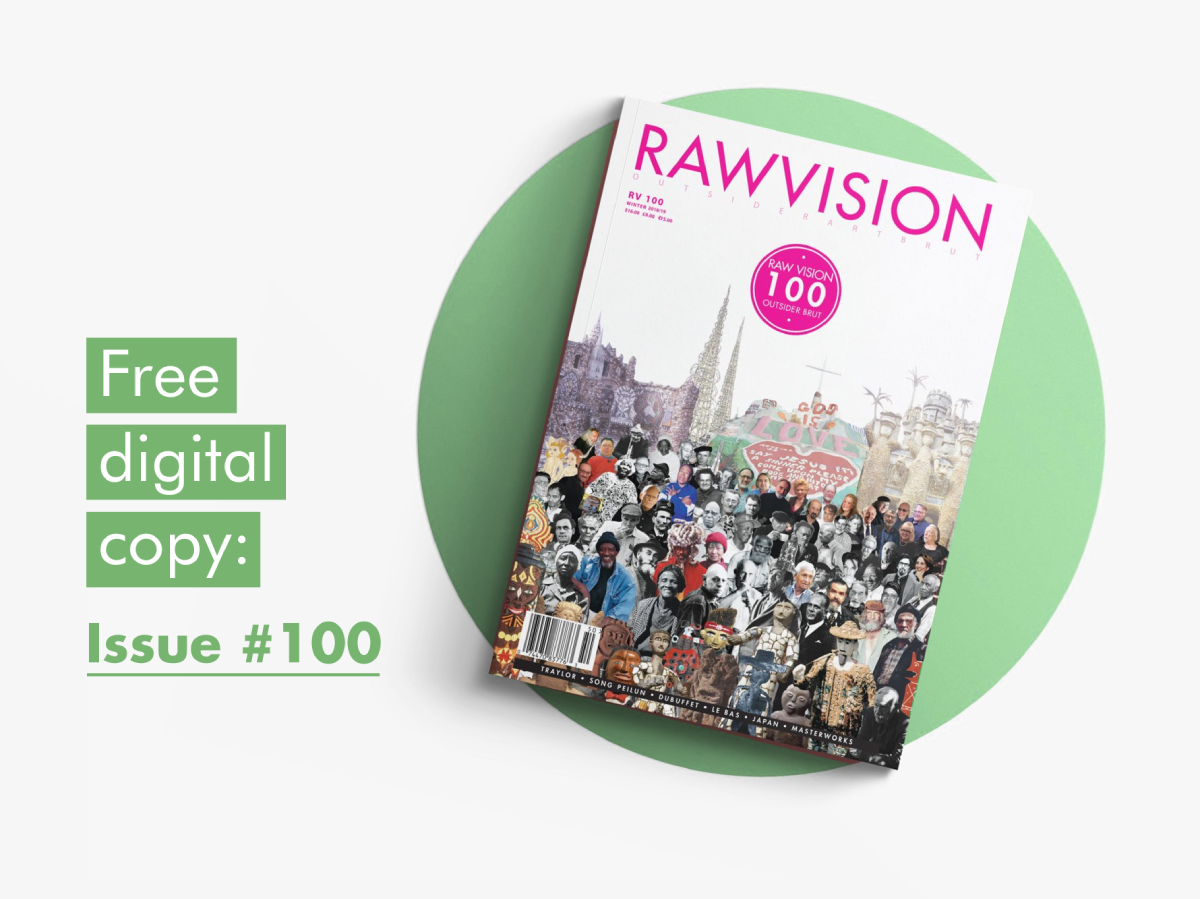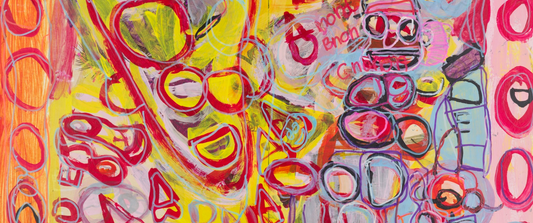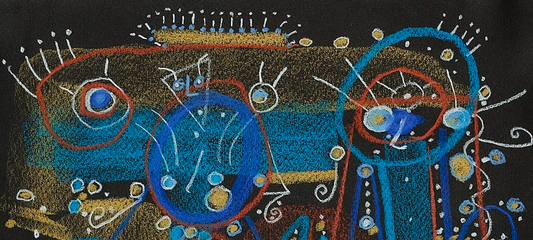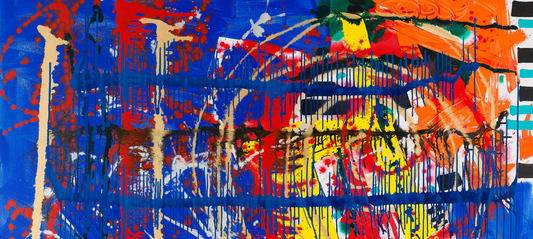First published: Spring 2012
Working in isolation as an artist and writer, Francis (‘Frank’) Archibald Wentworth Walter (1926–2009) is one of Antigua’s unrecognised creative talents. As an unmedicated schizophrenic, Walter was misunderstood by many and regarded by fellow islanders as either a prophet or a fool. According to Brooke Anderson, former AFAM_Curator and current Deputy Director for Curatorial Planning at the Los Angeles County Museum of Art, Walter’s artistic contribution marks the third point on a bizarre geographic triangle of international outsider artists: Swiss Adolf Wölfli, American Henry Darger and Caribbean Frank Walter.

Descending from prominent plantation owners and their slaves created a deep divide and was part of Walter’s ironic fate. Recognised as one of Antigua’s founding families, the Walters had powerful plantation-owning roots extending into the eighteenth century. Appropriately, his work deals largely with race, class and social identity (during the seven-year period in which I interviewed Walter, he believed he was white).
Frank Walter attended the Antiguan Grammar School as part of an experiment in which black children mixed and studied as equals with wealthy white WWII British refugees. Curiously regarded as a wunderkind by his white headmaster, Walter’s talents in foreign language, history and science were a source of fascination, and his eccentricities, notable even in childhood, were largely ignored. Walter’s early years were idyllic and spent making toys, writing poems, and memorising the Latin names of flora and fauna. He also learned the Classics and old Antiguan folktales from his elders, with whom he shared a strong bond. Most of his peers found him intimidating or dismissed him for his strongly non-conformist tendencies; however, other black and white elites, most of whom were related to him, enjoyed his unique wit and arresting paternal kindness.
This is an article extract; read the full article in Raw Vision #75




